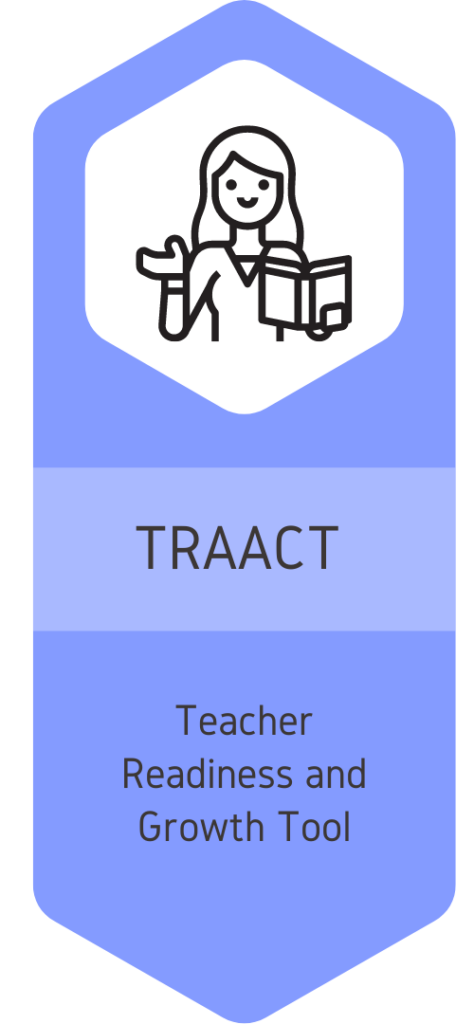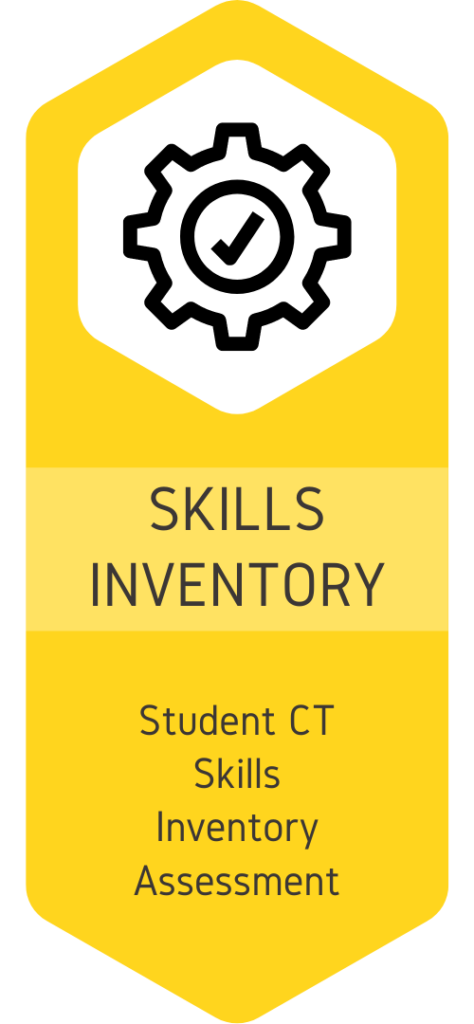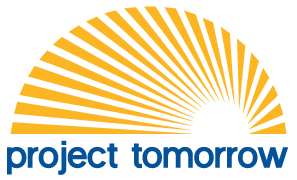Computational Thinking Resources
Assessment Tools – Computational Thinking Integration within the K-8 Classroom
The following three (3) assessment tools have been developed by Project Tomorrow to support the implementation of computational thinking concepts and strategies within the K-8 classroom.
If you are interested in learning more, you can email support@tomorrow.org

TRAACT™ (Teacher Readiness to Adopt and Adapt Concepts and Tools)
The TRAACT™ (Teacher Readiness to Adopt and Adapt Concepts and Tools) survey, developed by Project Tomorrow, evaluates teachers’ preparedness for integrating computational thinking or computer science into their classrooms. It offers a snapshot score that can be tailored to personalize professional development and track progress over time when utilized alongside the TRAACT™ Spectrum. This research-based tool, stemming from a Project Tomorrow National Science Foundation grant, evaluates not just teachers’ competencies but also their attitudes toward computational thinking/computer science and digital learning. It offers valuable insights to coaches and leaders regarding teachers’ confidence levels and their potential for sustained changes in instructional methods. This tool has been normed and used effectively with over 500 teachers as a pre and post assessment to measure growth in CT usage.
Project Tomorrow offers two versions of the TRAACT™ tool for school and district use:
- Project Tomorrow CT – TRAACT™ (Computational Thinking)
- Project Tomorrow CS – TRAACT™ (Computer Science)

Student Computational Thinking – Skills Inventory
As a result of our coaching work that began in January 2020 in New York City, it became evident that teachers greatly desire a quick and easy way to determine student’s knowledge and usage of Computational Thinking (CT). Similar to our proprietary evaluation tool for teachers, this tool enables teachers to gain a more thorough understanding of their student’s recognition, awareness, and usage of the four pillars of CT through their engagement with a variety of short problem-solving tasks.
The Skills Inventory is scored for each student providing an overall CT proficiency level (emerging, proficient, mastery) and a similar score for each of the four concepts (pattern recognition, decomposition, abstraction, and algorithm design). The data can be used by teachers as input to understand their students’ current abilities and also as potential input to changes in the teacher’s instructional practices. This tool can be used as a pre and post assessment if desired. Our Skills Inventory is unique as it evaluates not just student knowledge of CT vocabulary but their ability to use the CT concepts in real-classroom problem solving activities.
Based on this inventory, teachers receive valuable data highlighting:
- Each student’s strengths with the four individual CT concepts (% score of correct answers for decomposition, algorithm design, abstraction and pattern recognition)
- An overall score of the student’s proficiency with using the four pillars of CT to problem solve
- The ability to see class wide trends per CT concept (areas of proficiency and potential areas of growth)

Student Computational Thinking – Self-Efficacy Evaluation
Our accompanying Student Computational Thinking-Self-Efficacy Evaluation provides valuable insight into students’ authentic thoughts and feelings as they relate to CT-integrated instruction and the impact it has on their learning. The Self-Efficacy Evaluation is unique as it provides a research-based approach to understanding the long-tail impact of CT in the K-8 classroom.
The Student Computational Thinking-Self-Efficacy Evaluation is available for three grade bands: Grades 1 – 2, Grades 3-5, and Grades 6-8. Based on the resulting data, teachers, administrators, and other stakeholders are better able to:
- Understand the impact of CT integrated instruction from the student perspective
- Align school goals with student learning preferences
- Use student feedback to highlight effective teacher practices and classroom activities
- Improve the overall student learning experience (including the usage of technology)
- Justify CT professional learning for teachers

